FRTR Presents...Recent Advances in PFAS Characterization Technologies
Sponsored by: Federal Remediation Technologies Roundtable (FRTR)
This webinar will include live deliveries of two presentations from the recent FRTR Fall meeting, with updated information:
"Best Practices for PFAS Sampling and Evaluation"
"Clean Water Act Methods: Overview of EPA's CWA PFAS Method Activities".
The science and technology of site characterization for per-and polyfluoroalkyl substances (PFAS) has advanced in the five years since FRTR last addressed the topic in 2018. Federal agency budgets for PFAS remediation have grown substantially during this time. As a result, site characterization efforts such as Remedial Investigations, as well as early response actions, are underway at many Federal facilities. Funding for field-scale projects to further advance PFAS characterization technology and methodologies also has increased substantially.
This webinar will allow PFAS member agencies to share results of recent and on-going PFAS projects that are improving our understanding of PFAS characterization technologies.
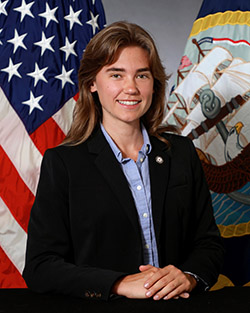 Nicolette Andrzejczyk, Navy (nicolette.e.andrzejczyk.civ@us.navy.mil)
Nicolette Andrzejczyk, Navy (nicolette.e.andrzejczyk.civ@us.navy.mil)
Dr. Nicolete Andrzejczyk is an environmental toxicologist at NAVFAC EXWC, with research experience spanning several environmental contaminant groups, including crude oils, novel disinfection byproducts, estrogenic compounds, pesticides, and PFAS. Dr. Andrzejczyk is involved in various PFAS-related projects for the Navy and provides technical consultation on reduction of human health and ecological risk at Navy environmental restoration sites. Prior to joining NAVFAC EXWC, she completed her Ph.D. at the University of California, Riverside studying molecular effects of various contaminant groups on aquatic biota through whole transcriptome sequencing and other techniques.
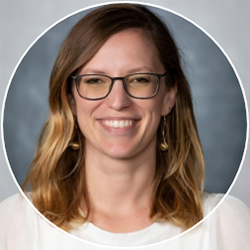 Sarah (Bekah) Burket, U.S. EPA (burket.sarah@epa.gov)
Sarah (Bekah) Burket, U.S. EPA (burket.sarah@epa.gov)
S. Bekah Burket recently joined the methods team in the Engineering and Analysis Division of the Office of Science and Technology within the EPA Office of Water. Prior to working with EPA, Bekah researched bioaccumulation of contaminants of emerging concern as part of her PhD work at Baylor University. As the newest chemist with the methods team, she is working on developing PFAS methods for wastewaters and is currently leading the development effort for an adsorbable organic fluorine method.
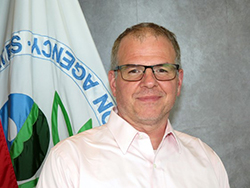 Troy Strock, U.S. EPA, Office of Resource Conservation and Recovery (ORCR) (strock.troy@epa.gov)
Troy Strock, U.S. EPA, Office of Resource Conservation and Recovery (ORCR) (strock.troy@epa.gov)
Troy Strock is the organic methods lead for the SW-846 Methods Program in EPA's Office of Resource Conservation and Recovery (ORCR). Prior to coming to ORCR he worked for two years in the Contract Laboratory Program in EPA's Office of Superfund Remediation and Technology Innovation and for 14 years in the EPA Region 5 Laboratory in Chicago as an organic chemist. He holds a bachelors degree in interdisciplinary science and biology and a master's degree in soil science from Purdue University.
Adrian Hanley, U.S. EPA (hanley.adrian@epa.gov)
Moderators:
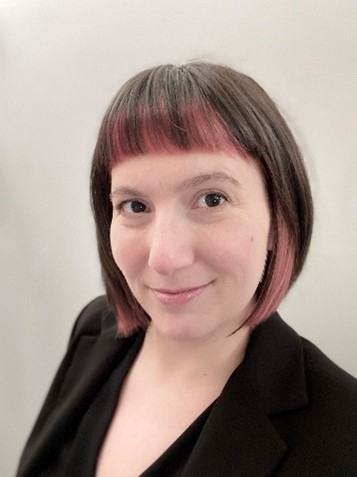 Cindy Frickle, U.S. EPA Office of Superfund Remediation and Technology Innovation (frickle.cynthia@epa.gov or 202-566-0927)
Cindy Frickle, U.S. EPA Office of Superfund Remediation and Technology Innovation (frickle.cynthia@epa.gov or 202-566-0927)
Cindy Frickle is a physical scientist with EPA's Superfund program where she reviews and propagates technical information to site cleanup professionals through Clu-In, EPA forums, and interagency channels. Prior to joining EPA, she spent time characterizing contaminated sites, coring sediments, studying microbes, and teaching. She completed her Biogeology MS and Geology BS in the University of Minnesota's School of Earth Sciences.
 Michael Adam, U.S. EPA Technology Innovation and Field Services Division (adam.michael@epa.gov or 703-603-9915)
Michael Adam, U.S. EPA Technology Innovation and Field Services Division (adam.michael@epa.gov or 703-603-9915)
As a Triad advocate, Mike directed the final production of the Management and Interpretation of Data Under a Triad Approach. For the Technology Innovation Program (TIP), Mike serves as POC for various issues and initiatives such as Vapor Intrusion, Decision Support Tools, and the Measurement and Monitoring Technologies for the 21st Century initiative; and is part of the CLUIN management team. Mike has graduate degrees in Plant Physiology (2000, Iowa State) and Environmental Engineering (2003, Nebraska-Lincoln), and was a staff Research Assistant in Environmental Soil Science at Nebraska-Lincoln before joining the Technology Innovation Program at the EPA in late 2004.
Webinar Slides and References:
-
 Slide Presentation for FRTR Best Practices for PFAS Sampling and Analysis - Andrzejczyk, NAVFAC EXWC (3.22MB/PDF)
Slide Presentation for FRTR Best Practices for PFAS Sampling and Analysis - Andrzejczyk, NAVFAC EXWC (3.22MB/PDF)
-
 Slide Presentation for CWA PFAS and SW846 PFAS Method Updates - Burket, U.S. EPA and Strock, U.S. EPA (1.66MB/PDF)
Slide Presentation for CWA PFAS and SW846 PFAS Method Updates - Burket, U.S. EPA and Strock, U.S. EPA (1.66MB/PDF)
Additional Resources:
- November 2023 FRTR Meeting Presentations
- Next FRTR Meeting Information
- FRTR.gov
 Terms Used to Describe the Standing of U.S. EPA Methods (PDF)
Terms Used to Describe the Standing of U.S. EPA Methods (PDF)- Current Methods Update Rule
- CWA Analytical Methods and Polyfluorinated Alkyl Substances (PFAS)
- Leaching Environmental Assessment Framework (LEAF) Methods and Guidance
Thank you for participating in our webinar. We would like to receive any feedback you might have that would make this service more valuable.
Help & FAQs
- Frequently Asked Questions
- Content Questions?
Call Cindy Frickle at 202-566-0927 or Frickle.Cindy@epa.gov - Technical Problems?
Leave us a comment - Cancel Your Registration
- My Participation Records
- CEU Credits and PDHs
Zoom Resources
Before Webinar Day
This seminar will be delivered through Zoom. Participants are encouraged to update to the latest version of the Zoom application for the best experience.
If you are unable to install the Zoom application, most functions will be available if you join just using a modern web browser such as Chrome, Edge or Firefox. We strongly encourage you to run the Zoom Meeting Test prior to attending this webinar. Technical support on the day of the webinar will be very limited and subject to significant delays.
Backup Conference Call
If you cannot participate using online audio, you may join the optional call in line. After checking in for the live event using the instructions listed below, you will see several options to participate. Please click the links in option 4 to follow along by phone and obtain the call in number. If you cannot access the phone number, you may request the call in line from the event moderator in the Q&A or send an email to Jean Balent at balent.jean@epa.gov
Click on "Join Webinar" at the top of this screen, enter your exact first and last name as you registered and enter the number of people attending at your location (including yourself). You should then be taken to the Zoom meeting room. Join with Zoom Application: For those joining with the Zoom application, you may be prompted to sign with a zoom account or join as a guest without signing in.
If joining as a guest, you will be prompted to enter your name and email address. Remember your name, image, video or voice may be visible to others in the live event. When done, click "Join" When it is time for the live event to start, the meeting host will admit you to the live Zoom meeting. Join via web browser (without the Zoom Application): For those joining with a web browser, you may close any pop ups prompting you to download the Zoom app. The next window will allow you to enter your name (first name and last name) and check the box that you are not a robot. Click the blue join button. You may also be asked to provide your email address before joining the room. Remember your name, image, video or voice may be visible to others in the live event. When done, click "Join" When it is time for the live event to start, the meeting host will admit you to the live Zoom meeting. You may need to periodically refresh the browser window to confirm if the host has admitted you. The presenters will control what slide you are viewing. You may submit questions online for the instructors to answer during the webinar by typing in the "Q&A" area. It is not necessary to wait until the question and answer periods to submit questions. At the end of the webinar you will be guided to our feedback form and links to additional resources, including the complete presentation. These links will remain active after the webinar. Provided for your convenience. Importing or accepting the invitation within this iCalendar file is not required, and declining the invitation does not cancel your registration. For additional information on iCalendar, please see our
iCalendar Help It is EPA's policy to make reasonable accommodation to persons with disabilities wishing to participate in the agency's programs and activities, pursuant to the Rehabilitation Act of 1973, 29 U.S.C. 791. Any request for accommodation should be made to at or , preferably one week or more in advance of the webinar, so that EPA will have sufficient time to process the request. EPA would welcome specific recommendations from requestors specifying the nature or type of accommodation needed. EPA welcomes specific recommendations from requestors specifying the nature or type of accommodation needed. Please note that CLU-IN provides both alternate phone call-in options and closed captioning for all webinars, and requests for these specific accommodations are not necessary.
Webinar Day, Checking In
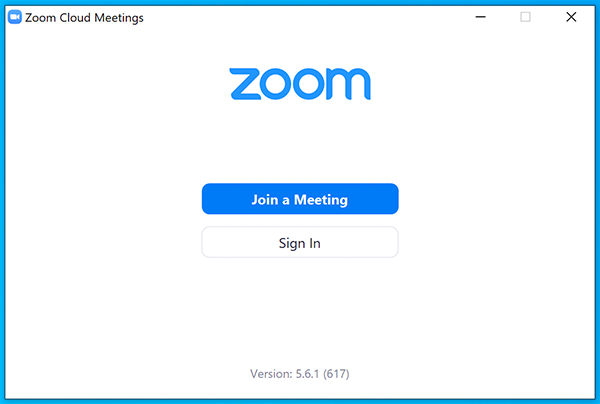
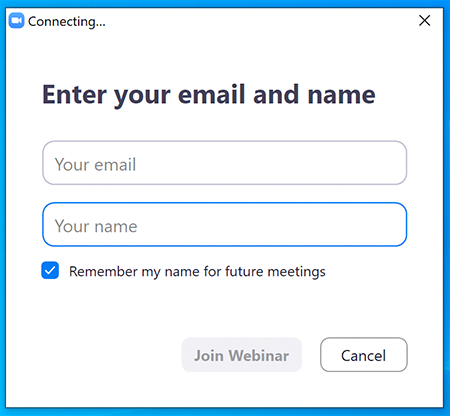
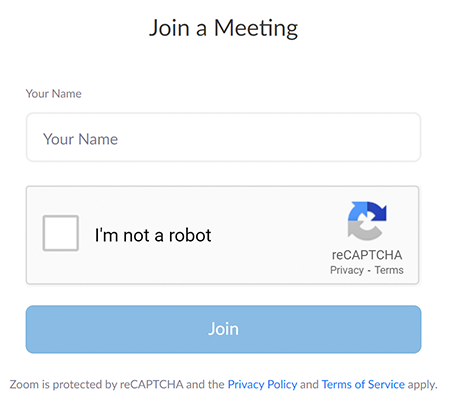
Moving Through Slides
Feedback & Links to Additional Resources
iCalendar File
Rehabilitation Act Notice for Reasonable Accommodation
Rehabilitation Act Notice for Reasonable Accommodation
It is EPA's policy to make reasonable accommodation to persons with disabilities wishing to participate in the agency's programs and activities, pursuant to the Rehabilitation Act of 1973, 29 U.S.C. 791. Any request for accommodation should be made to at or , preferably one week or more in advance of the webinar, so that EPA will have sufficient time to process the request. EPA would welcome specific recommendations from requestors specifying the nature or type of accommodation needed. EPA welcomes specific recommendations from requestors specifying the nature or type of accommodation needed. Please note that CLU-IN provides both alternate phone call-in options and closed captioning for all webinars, and requests for these specific accommodations are not necessary.
Webinar Recording
By participating in this CLU-IN webinar, you automatically agree to authorize recording of audio and visual content presented during this live event and consent to subsequent use of this recording in the public domain by the U.S. Environmental Protection Agency. This recording may include questions, comments and poll responses provided by you during the live event in addition to your name, voice, image or likeness. This recording will be made available after the conclusion of the live event as part of the CLU-IN webinar archives, and will remain available indefinitely. If you do not wish to consent to the recording, please do not join the live event, and contact Jean Balent at 202-566-0832 or balent.jean@epa.gov to discuss your concerns.
Content Disclaimer
This webinar is intended solely to provide information to the public. The views and opinions expressed as part of this webinar do not necessarily state or reflect those of the U.S. Environmental Protection Agency. It is not intended, nor can it be relied upon, to create any rights enforceable by any party in litigation with the United States, or to endorse the use of products or services provided by specific vendors. With respect to this webinar, neither the United States Government nor any of their employees, makes any warranty, express or implied, including the warranties of merchantability and fitness for a particular purpose, or assumes any legal liability or responsibility for the accuracy, completeness, or usefulness of any information, apparatus, product, or process disclosed, or represents that its use would not infringe privately owned rights.

